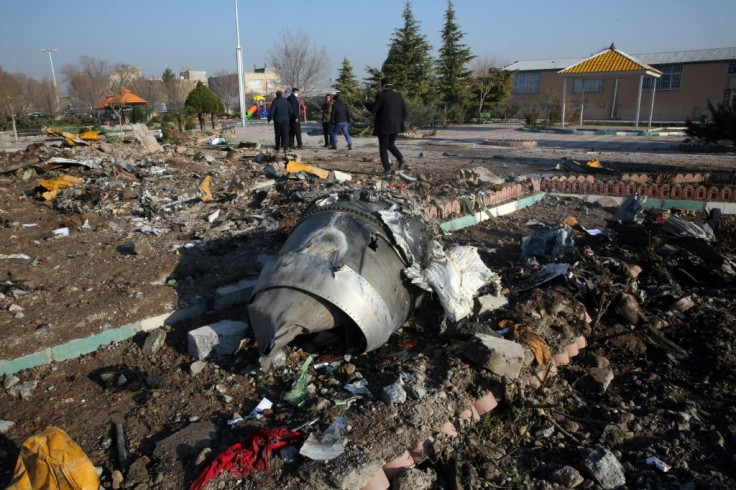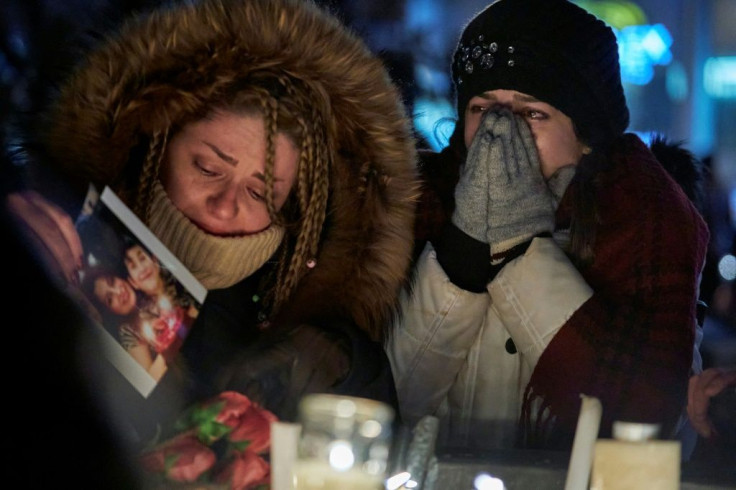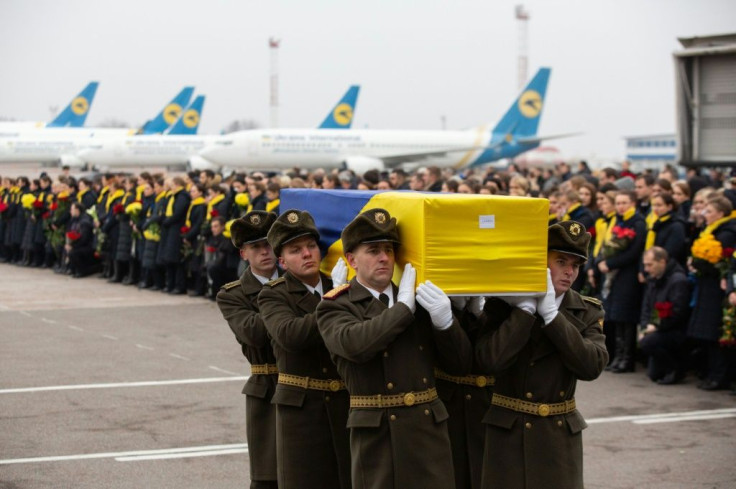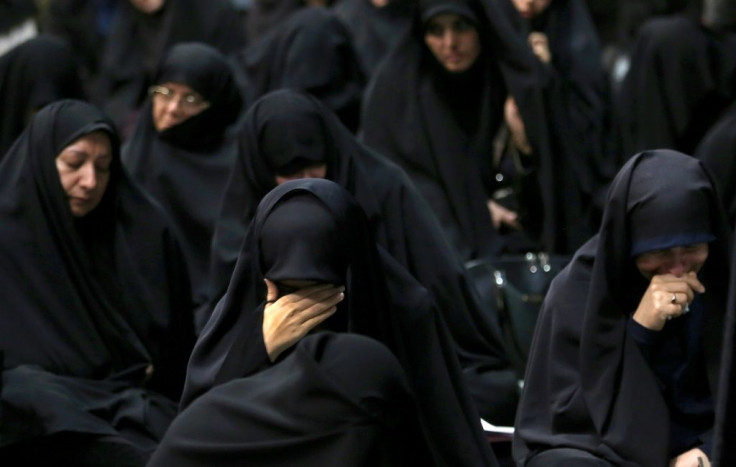Tensions Mount Over Iran's Ukrainian Plane Probe

Tensions are mounting over Tehran's probe into the January downing of a passenger plane near the Iranian capital, as countries that lost citizens in the disaster criticise the Islamic republic's reticence to share key information.
Iran's authorities are examining the incident in which its air defences shot down the Kiev-bound Ukrainian International Airlines flight a few minutes after takeoff from Tehran on January 8, killing 176 people.
On Monday, Ukraine's President Volodymyr Zelensky accused Tehran of knowing "from the start" that its missile had downed the Boeing 737, after leaked recordings emerged from Iranian air traffic control.
The recordings, aired on Ukraine's 1+1 TV channel on Sunday, feature a conversation between an air traffic controller and the pilot of an Iranian Aseman Airlines flight at the time the Ukrainian airliner was hit.
The pilot describes "a series of lights on our route, like a missile" and an "explosion", and asks for explanation from the controller.
Countries whose citizens died in the disaster have criticised Iran's refusal to hand the plane's black boxes to Ukraine or one of the few countries capable of recovering and analysing the data they contain.
The disaster unfolded as Iran's defences were on high alert in case the US retaliated to Iranian strikes hours earlier on American troops stationed in Iraq -- themselves in response to the US assassination of a top Iranian commander.

Canada, which says it lost 57 citizens in the tragedy, suspected from a start that a missile had downed the plane, carrying mostly Iranian passengers as well as Afghans, Britons, Swedes and Ukrainians.
In the immediate aftermath, Iranian civilian authorities insisted the crash was likely caused by a technical malfunction, vehemently denying claims the plane was shot down.
But in the early hours of January 11, the Iranian military admitted that the plane was shot down due to "human error".

The aerospace commander of Iran's Revolutionary Guards, Brigadier General Amirali Hajizadeh, took responsibility, saying a missile had been fired due to a "bad decision" by a missile operator.
In the absence of information from military authorities, investigators initially said the crash was likely caused by "an engine fire or an explosion on board" the aircraft.

The Iranian government maintained it had not been informed of the true cause of the accident until the afternoon of January 10, denying any cover-up and promising a transparent investigation open to all concerned parties.
Days later, a video circulated on social media indicating that not one but two missiles were fired at the aircraft, about 30 seconds apart. That was not confirmed until January 20 by the Civil Aviation Organisation (CAO).
"Once and for all, the government was not informed," the director of President Hassan Rouhani's cabinet, Mahmoud Vaezi, said Wednesday, adding that the Iranian leader "was not informed until the afternoon of Friday" January 10.
On the recording broadcast by 1+1, Vaezi said it was transferred to the Ukrainians and "therefore has nothing secret".
He noted that the pilot on the recording does not say that the plane was hit by a missile.
The CAO criticised the broadcasting of the recording, saying that the pilot had been interviewed by investigators.
The lights seen by the pilot could have been the plane on fire, the CAO said, affirming it wanted to work with the concerned countries and calling for "all parties to avoid politicising" the disaster.
Canada has repeatedly asked Iran to hand the plane's black boxes over to Ukraine or France for expert analysis.
"The community of grieving nations continues to call on #Iran to immediately release the black boxes," Canadian Foreign Minister Fran?ois-Philippe Champagne tweeted on Tuesday.
The CAO, which acknowledges it does not have the means to retrieve data from them, said it asked its French and US counterparts, the BEA and NTSB respectively, to provide a list of the equipment required.
Swedish Foreign Minister Ann Linde reiterated calls for the "immediate release" of the boxes in a tweet Tuesday.
"Iran needs to secure closure, accountability, transparency and justice for victims of #PS752," she said.
© Copyright AFP 2024. All rights reserved.





















